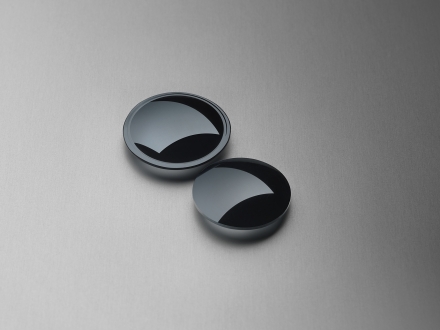Infrared Glass Optics will be Exhibited by FISBA at SPIE DCS

Supported by advanced tactile metrology, FISBA produces components in the SWIR, MWIR and LWIR including aspheric optics and diffractives molded from chalcogenide glass.
Infrared lenses are suited for many defense & security related applications, such as thermal imaging, remote sensing, and surveillance, among others.
FISBA offers precision glass molding for infrared (molded aspheres and free forms) from design to serial production including coating and centering.
Customers also have the option to contract complete assembly and optical system developments and production to FISBA. Production of FISBA’s precision molded optics for infrared takes place in Tucson, Arizona, at their ITAR compliant facility.
Visit FISBA at DCS Booth 837.
About FISBA
FISBA is a worldwide leading supplier of customized optical components, systems and microsystems. Since 1957, it has been a company priority to stay progressive without losing sight of the values on which we were founded. This mindset has enabled FISBA to become one of the most innovative suppliers in the optics industry, as well as a trusted partner to our customers. FISBA operates at facilities in Switzerland, Germany and the USA.
Discover the new website at www.fisba.com
Media Contact
Birgit Rauch, Head of Marketing Communication
Media Contact
All latest news from the category: Trade Fair News
Newest articles

Silicon Carbide Innovation Alliance to drive industrial-scale semiconductor work
Known for its ability to withstand extreme environments and high voltages, silicon carbide (SiC) is a semiconducting material made up of silicon and carbon atoms arranged into crystals that is…

New SPECT/CT technique shows impressive biomarker identification
…offers increased access for prostate cancer patients. A novel SPECT/CT acquisition method can accurately detect radiopharmaceutical biodistribution in a convenient manner for prostate cancer patients, opening the door for more…

How 3D printers can give robots a soft touch
Soft skin coverings and touch sensors have emerged as a promising feature for robots that are both safer and more intuitive for human interaction, but they are expensive and difficult…





















